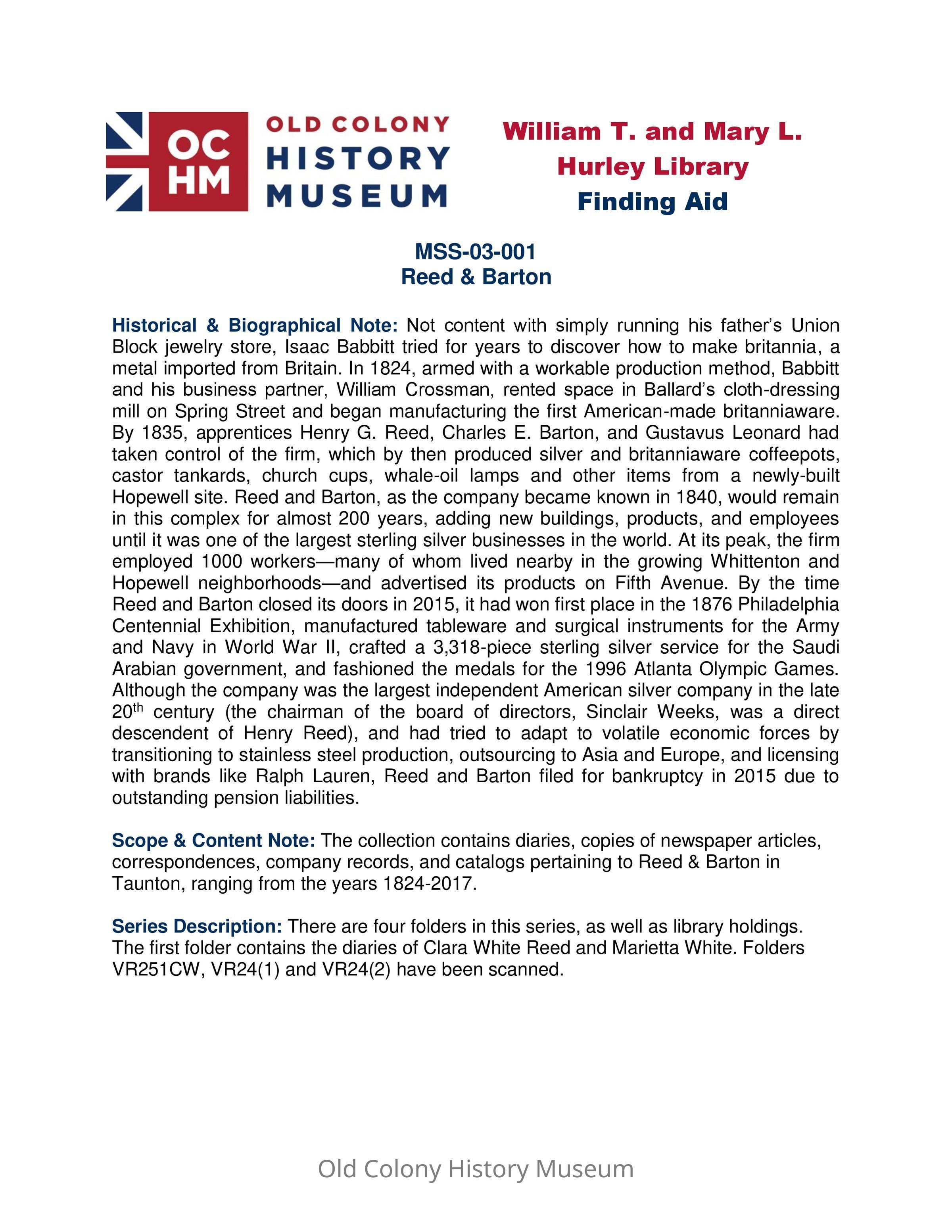Name/Title
Reed & BartonEntry/Object ID
MSS-03-001Scope and Content
The collection contains diaries, copies of newspaper articles, correspondences, company records, and catalogs pertaining to Reed & Barton in Taunton, ranging from the years 1824-2017.Context
Not content with simply running his father’s Union Block jewelry store, Isaac Babbitt tried for years to discover how to make britannia, a metal imported from Britain. In 1824, armed with a workable production method, Babbitt and his business partner, William Crossman, rented space in Ballard’s cloth-dressing mill on Spring Street and began manufacturing the first American-made britanniaware. By 1835, apprentices Henry G. Reed, Charles E. Barton, and Gustavus Leonard had taken control of the firm, which by then produced silver and britanniaware coffeepots, castor tankards, church cups, whale-oil lamps and other items from a newly-built Hopewell site. Reed and Barton, as the company became known in 1840, would remain in this complex for almost 200 years, adding new buildings, products, and employees until it was one of the largest sterling silver businesses in the world. At its peak, the firm employed 1000 workers—many of whom lived nearby in the growing Whittenton and Hopewell neighborhoods—and advertised its products on Fifth Avenue. By the time Reed and Barton closed its doors in 2015, it had won first place in the 1876 Philadelphia Centennial Exhibition, manufactured tableware and surgical instruments for the Army and Navy in World War II, crafted a 3,318-piece sterling silver service for the Saudi Arabian government, and fashioned the medals for the 1996 Atlanta Olympic Games. Although the company was the largest independent American silver company in the late 20th century (the chairman of the board of directors, Sinclair Weeks, was a direct descendent of Henry Reed), and had tried to adapt to volatile economic forces by transitioning to stainless steel production, outsourcing to Asia and Europe, and licensing with brands like Ralph Lauren, Reed and Barton filed for bankruptcy in 2015 due to outstanding pension liabilities.Archive Details
Archive Size/Extent
There are four folders in this series, as well as library holdings. The first folder contains the diaries of Clara White Reed and Marietta White. Folders VR251CW, VR24(1) and VR24(2) have been scanned.
